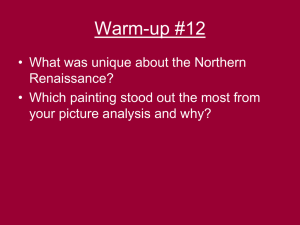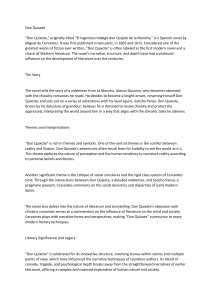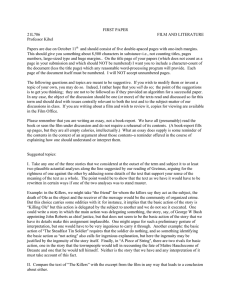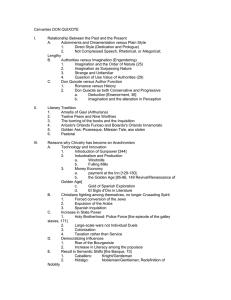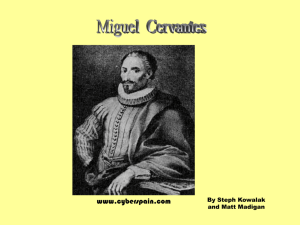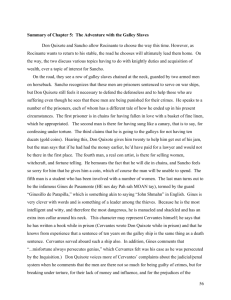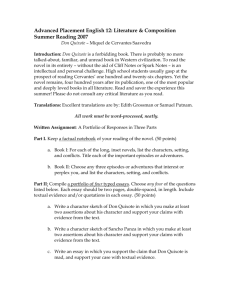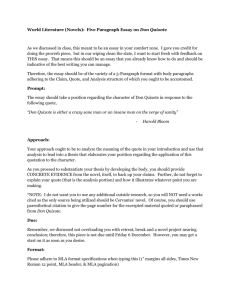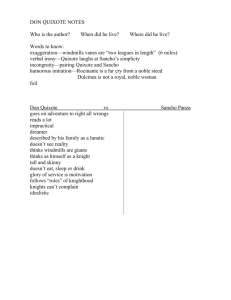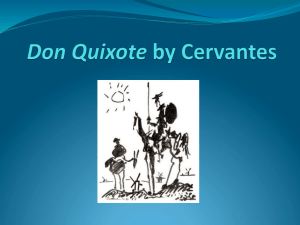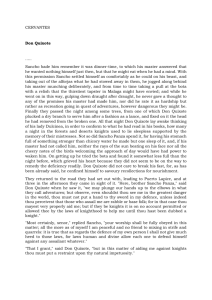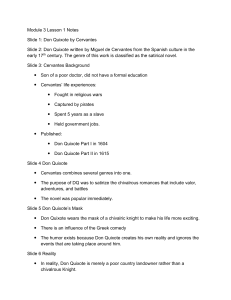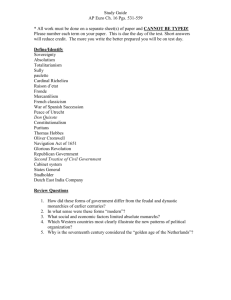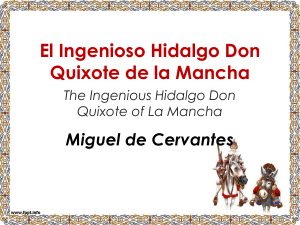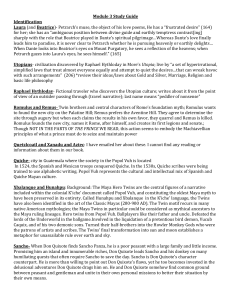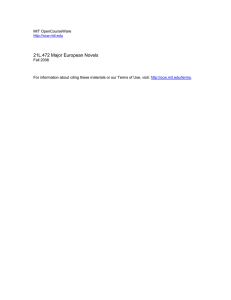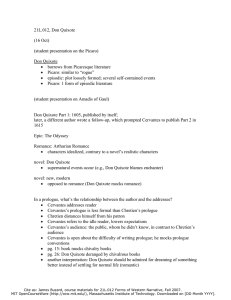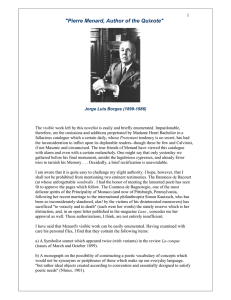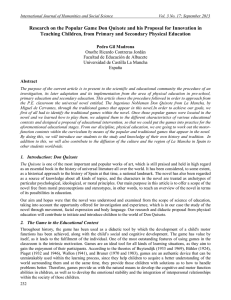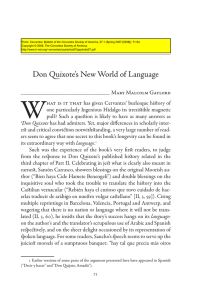Document
advertisement
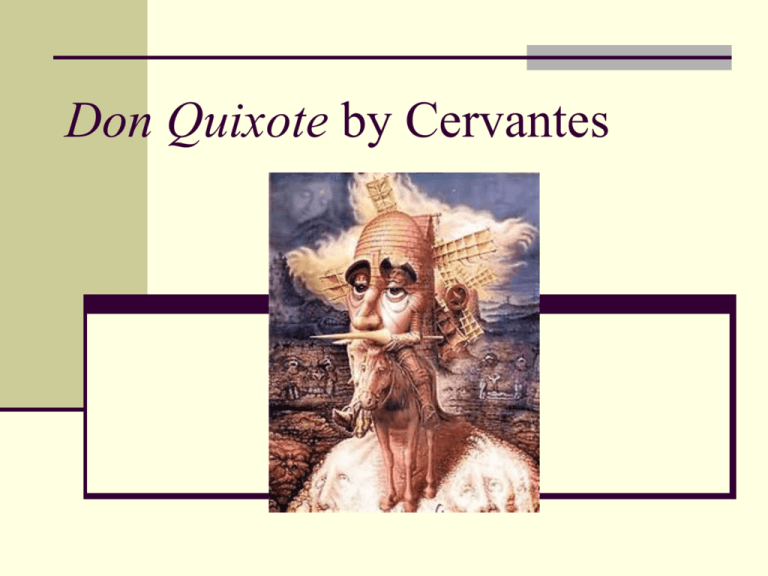
Don Quixote by Cervantes Don Quixote Author: Miguel de Cervantes Culture: Spanish Date: early 17th c. Genre: satirical novel Names/terms to know: Don Quixote, Sancho Panza, Dulcinea, Sansón Carrasco, Marcela, Grisóstomo, chivalry & pastoralism Cervantes Background Son of a poor doctor, did not have a humanist education Cervantes’ adventurous life: Fought in religious wars Captured by pirates Spent 5 years as a slave Held government jobs. 1604: Don Quixote Part 1 published 1615: published DQ II. Don Quixote Cervantes combines several genres into one. His initial purpose: to satirize the romances of chivalry, to create a parody of a literary type characterized by supernatural deeds of valor, implausible & complicated adventures, duels, and enchantments. The novel was popular immediately. Medieval Chivalry & Pastoral The literature that had expressed the medieval spirit of chivalry and romance had degenerated by Cervantes’ time. His method of showing the inherent silliness of chivalric romances: ‘to show what extraordinary consequences they would lead a man insanely infatuated with them, once this man set out to live ‘now’ according to their patterns of action and belief.’ In addition to chivalric romances, Cervantes parodies the pastoral novel, with the section about Marcela, the shepherdess who is unmoved by her shepherd admirers. Don Quixote’s Mask Our hero, Don Quixote, dons the mask of a chivalric knight to make his life more interesting and bearable. We can see the influence of Greek comedy on this novel: a crazy idea is proposed, and the rest of the work concerns its working out in the real world. The humor lies in the contrast between Don Quixote’s ideals and the real world around him. French Jesuit Francois de la Noue - Warned against the dangerous influence of chivalric books on the young - claimed they were as harmful to the young as Machiavelli was to the old. [Think also Socrates] Reality Don Quixote is not a knight but an impoverished country landowner. His ideals: love as ‘service,’ adventurousness, loyalty to valor and generosity. Tries to seek out wrongs and right them, to help those in need, to be full of valor in honor of his Lady (courtly love). Like Greek heroes, he wants his great deeds to be sung. Don Quixote: a wandering hero His insanity: caused by reading too many books about chivalry (literature corrupts) First Nine Chapters Some scholars think these chapters represent the kernel of a story originally meant to be just a novella. The story breaks off soon after DQ has taken off again with Sancho Panza as his squire, fresh from their windmill encounter.
